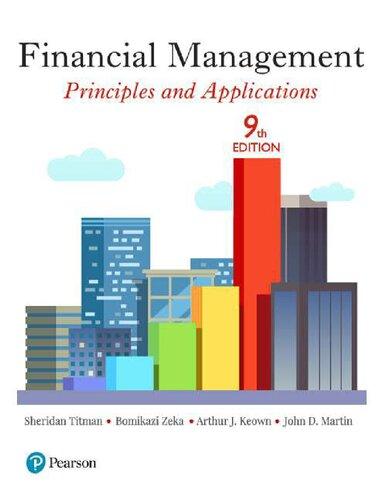Note: When you are calculating the inflation adjusted estimated future value of the portfolio, please use an assumed inflation of 2% and an assumed annual return of 4.5%.

Tom is single, age 58, and in excellent health. He is a self-employed computer consultant regularly hired by Fortune 500 companies. Over the past 25 years, Tom has never netted less than $250,000 a year from his job. Tom has no life insurance, but he has an excellent catastrophic medical insurance policy. He has never been married and has no children. Tom owns and lives in a $1.3 million condo (no mortgage). He wants to live in this condo until he dies. He can comfortably save $70,000 a year ($40,000 of this goes into a profit-sharing plan). Tom loves his job and expects to work another 10-15 years. He reads The Wall Street Journal every day and knows more about investing than the average financial advisor or broker. Tom's portfolio is fairly basic: $1.2 million invested in 20 different large cap blue chip stocks (-$60,000 in each stock), $300,000 in T-bonds (17-year remaining maturity), $200,000 in a 2030 target-date retirement fund, and $100,000 in gold bullion. His only tax-sheltered account is a profit-sharing plan that holds the 20 stocks. He believes his overall risk level should be slightly more aggressive than "average (or moderate). Tom was adopted, and his 95-year-old mom owns a $3 million house on the beach in San Francisco. His mom is in good health, and Tom is her sole heir. She has no debt and no mortgage. Her sole sources of income are Social Security ($2,500 a month) and periodic withdrawals ($2,000 a month) from an $800,000 checking account. She lives a modest lifestyle. Tom wants you to give her a few brief investment suggestions. Tom and his mom are open to any investment suggestions (for each portfolio) except annuities and insurance products. Tom wants you to draft an investment plan and answer the following questions: [1] Do his current holdings reflect his risk level? [2] What changes, if any, would you recommend for his portfolio as well as future investments? [3] Can anything be done to easily lower his tax liability? [4] What will his portfolio be worth in 1520 years? [5] What should his mother do with her portfolio? Draft a response you would be proud to send to Tom. Tom is single, age 58, and in excellent health. He is a self-employed computer consultant regularly hired by Fortune 500 companies. Over the past 25 years, Tom has never netted less than $250,000 a year from his job. Tom has no life insurance, but he has an excellent catastrophic medical insurance policy. He has never been married and has no children. Tom owns and lives in a $1.3 million condo (no mortgage). He wants to live in this condo until he dies. He can comfortably save $70,000 a year ($40,000 of this goes into a profit-sharing plan). Tom loves his job and expects to work another 10-15 years. He reads The Wall Street Journal every day and knows more about investing than the average financial advisor or broker. Tom's portfolio is fairly basic: $1.2 million invested in 20 different large cap blue chip stocks (-$60,000 in each stock), $300,000 in T-bonds (17-year remaining maturity), $200,000 in a 2030 target-date retirement fund, and $100,000 in gold bullion. His only tax-sheltered account is a profit-sharing plan that holds the 20 stocks. He believes his overall risk level should be slightly more aggressive than "average (or moderate). Tom was adopted, and his 95-year-old mom owns a $3 million house on the beach in San Francisco. His mom is in good health, and Tom is her sole heir. She has no debt and no mortgage. Her sole sources of income are Social Security ($2,500 a month) and periodic withdrawals ($2,000 a month) from an $800,000 checking account. She lives a modest lifestyle. Tom wants you to give her a few brief investment suggestions. Tom and his mom are open to any investment suggestions (for each portfolio) except annuities and insurance products. Tom wants you to draft an investment plan and answer the following questions: [1] Do his current holdings reflect his risk level? [2] What changes, if any, would you recommend for his portfolio as well as future investments? [3] Can anything be done to easily lower his tax liability? [4] What will his portfolio be worth in 1520 years? [5] What should his mother do with her portfolio? Draft a response you would be proud to send to Tom







